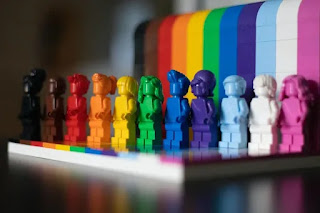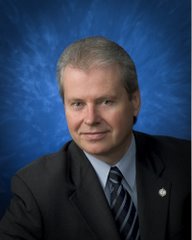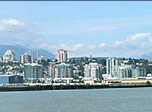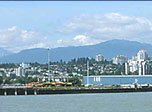Diversity, equity, inclusion and the sleep of
reason
Our social community in Canada is deeply divided. One can’t understand how intelligent, educated
people swallow the NDP-Liberal political narratives, especially over the long
term. Sensible people know, given what
they see around them, that those on the 'other side' are very wrong about the
economy, environmental policy, community safety and social behaviour.
Many Canadians rightly complain about our federal
government. But, then they actually do
little about it. They may even let the
horribilia roll right over them. However,
the ultimate solution is at the ballot box.
The chance for Canadians to save themselves from the
NDP-Liberal cabal is coming, but for many, not soon enough. The polls reveal voters are starting to wake
up.
How did Canada spiral downward to such social dysfunction? There has been much discussion about the
emerging role of technology and its ability through social media to magnify and
multiply unacceptable excess, unlike any previous generation.
Similarly, down through the years, the entertainment
industry has relentlessly pushed the boundaries of decency in pursuit of
financial profit regardless of the social cost.
The news cycle has changed from daily newspaper reflection,
into instant unthinking emotional reactions on the cellphone. Our political speech sometimes becomes
complete fiction, similar to the horror days of the old USSR. Universities and sometimes even grade school
curricula have developed excesses of identity politics, age-inappropriate
sexual subjects and exclusion of parents and community for accountability. Public cynicism about our democracy and
institutions has never been higher.
An additional social pressure that has poisoned the
political air, has been the employee training industry used by large
corporations. Training fads for company
conventions, employee retreats and human resource development have subtly
changed over the years, and now is nothing more than slick social Marxism.
It is the innocent-sounding 'DEI'
(diversity-equity-inclusion) training ideology that has taken over and seduced
administrators who strive to remain relevant — which they interpret as being
woke. In fact, DEI initiatives have
taken over the country, reaching into every aspect of our work, school, and
lives.
What is DEI? In truth, it is a contemporary and managerial
repackaging of extreme socialism. It is
not possible to understand DEI initiatives without realizing the special
meaning of ‘equity’ that drives its perpetrators.
Equity is the goal of all DEI programs, which is to say that
programs exist to force captive audiences to achieve 'equitable' redistribution of resources, status, and wealth
according to neo-Marxist identity.
Equity is an administered political economy in which shares
are adjusted so citizens are made equal, including shares of social and
cultural capital. In other words, it’s
an expansion of socialist-enforced groupthink. Once we understand what the unique version of ‘equity’
is about, the purposes of diversity and inclusion teachings become clear.
For example, a Canadian DEI training company puts itself
forward in the following way. Their
website says "We take an intersectional approach in all of our work which
includes an examination of a multitude of diverse identity factors including
sex, gender identity, sexual orientation, race, ethnicity, language, disability
(visible and invisible,) age, location, family status, marital status, income,
education, religion, culture and much more!
Our approach considers these layers as well as various intersecting
identities and how they overlap to compound privilege, discrimination or
oppression. We develop change management
and communications plans for our clients to ensure project buy-in and success. We integrate DEI into the values, strategies,
and priorities of the organization to ensure sustainability and impact.”
When one reflects on that website statement, alarm bells
should be sounding. In other words, the
DEI trainers are going to come into a company or organization to reform the
personal private self-image of employees. There is nothing about personnel skill
development such as language competency, communications skills, choice theory,
time management, computation efficiencies, computer literacy, customer
relations, group leadership practices, etc. It is all about one's personal deep feelings
(religion), and the assertion that Canada is based upon white privilege,
discrimination and oppression of minorities.
The methods used are sly stories to make employees feel
guilty about who they really are, and that they must change their beliefs and
life outlook. After creating the false
need, the 'training consultants' invite the company or organization to join
their 'religious membership' through ongoing training contracts, as long as the
company pays the business expense invoice.
DEI unconscious bias training rarely changes actual
behaviours and has little impact on explicit biases. A meta-analysis of hundreds of
prejudice-reduction interventions found few, if any, achieved goals. Many interventions caused a backlash and
social division, and there was worker productivity loss, as the guilt-making
human resource manager gurus, become increasingly coercive when employees
instinctively do not swallow the dogma.
'Diversity' initiatives strive to install ideologically
consistent political officers within organizations to effect and enforce
policies directed toward achieving equity. These political officers, often called
'Diversity Officers,' are a rebranding of the older concept of commissars, who
enforced socialism in the same way.
How did we get here in Canada? The answer is complex and incremental. Bad judicial interpretation of human rights
law and motivated political shaming that centres disparate impact or hierarchy
of outcomes, rather than intention, as evidence of discrimination.
Moreover, the diversity scam can never be satisfied, as
ongoing social blackmail is used to sidestep numerical standards, measured
achievement and performance competence evaluation in the workplace or
educational establishment. It is the
discredited affirmative action philosophy gone mad.
'Inclusion' is an overarching value structure for the
'Diverse and Equitable' commissar system. It's a justification, not for inclusion as
most people understand it, but for censorship and purges against those who
don’t swallow the dogma, just like in any Communist state.
Inclusion, and its extension in 'belonging,' are a
manipulative strategy akin to Mao Zedong’s little red book formula for taking
over institutions and the value structure of populations and bending them
toward extreme socialism (equity).
Inclusion is exactly the opposite of what it sells itself to
be. It is all wrapped in a culture war
of word manipulation and it creates social disasters wherever it takes hold.
There’s a whole industry designed to cater to companies
looking for a quick way to check the box to appear to be the most enlightened
workplace. In the US in 2020 DEI was a
$3.4 billion industry. Every big company
has become image-conscious because of the pervasiveness of the social and
cultural accusers. Companies think they
have to do something to signal their righteousness.
The Diversity, Equity and Inclusion religion is in vogue. But from the promoters of DEI, it’s about a
power and advantage grab for their believers.
Incredibly, businesses globally are looking for personnel to fill newly
created, politically powerful, DEI positions in their Human Resources
Departments. Sadly, the ideological trap
is that many companies believe DEI training can help develop 'best practices'
to circumvent business disruptions (and inefficiencies) otherwise caused by
emerging socio/cultural tensions and chaos. Corporations also want to burnish their
general public image. Predictably, the
recorded outcomes are a complete failure.
Remember how Justin Trudeau hammered away about how
"diversity is our strength." His
scriptwriters were wrong. No, it is
unity that is our national strength. Many
Canadians have been socially and economically hurt by the flippant accusations
of the DEI evangelists. In response,
people cower. They self-censor and just
go along to get along.
It is a social problem recognized by delegates from across
the country who convened at the Conservative Party National Convention held in
Quebec City. For example, Submission
#998 - Protecting Workers: Those in Unions, Public Sector, or in Self-Regulated
Trades or Professions. "The
Conservative Party does not support forced political, cultural, or ideological
training of any kind as a pre-condition of employment or practice. Those
employed in the public sector, unions or self-regulated trades/professions
should not be forced to make affirmations, or participate in ideological
programs, as a condition of employment or practice.” The Conservatives voted 81% to pass the
motion to not force ideological training as a condition of employment or
practice.
In conclusion, the DEI industry, if understood as woke
Marxism, is easy to understand. Equity
is a rebranding of Socialism: an administered economy that makes outcomes more
equal through devious means. Diversity
and Inclusion are tools used to install political officers (human resource and
personnel managers) and to censor and remove dissidents. In other words, the
Woke Marxist DEI industry is a racket designed to install commissars for its
ideology. We realize that DEI actually
represents social Division, Intolerance, and Exclusion, as that is how it
operates if one does not accept the absurd assumptions. It is the new form of racism and social coercion.
There are a million private stories of a new kind of
workplace discrimination, petty reprisals, and forced early retirements, all
arising from the emergence of DEI. Lower-level
managers with personality disorders can too easily hide under the DEI cover to
perpetrate unprofessional behaviours against individuals.
Many thousands of Canadians are at risk of being fired,
suspended, or barred from earning their livelihood simply for not endorsing,
not affirming, or not participating in an established or mandated political or
ideological agenda. The track record of
unions defending workers' rights from this behaviour is dismal. The tragic
workplace stories are adding up.
One has to use discernment to understand the deeper
implications. It is cultural Marxism in
new deceptive forms. Recognize it and be
aware. It may take the form of removing
community statues, shaming to have city and school names changed, or hearing
some of the more radical accusations from the First Nations sector.
Disparate outcomes become the false evidence of
discrimination and prejudice, that must be ameliorated through special deals
and exceptions to basic standards. However, this social-political blackmail can
never be fully satisfied.
Find your own small area to resist and speak up. Pay attention to local school board behaviour
and ensure the radicals are not elected.
Take stronger stands within unions and learn the internal systems to
demand accountability. Understand the
underlying assumptions evident in political speech from the radical ideological
left.
Understand the motives and belief systems of extreme
environmentalists. All of these, if
given room, will drift towards increasing coerciveness to have their way. The principle that capacity creates its own
demand operates. The ability to offend
and get away with it, breeds more of the same. Our society is reaping the consequences, for
the excesses that are permitted will grow like a deadly infection. The ability to offend without a swift
comprehensive response, breeds its own tragedy.
We have inherited a social political system that requires
individuals to be of character to make our great democracy work. Convoluted DEI reasoning comes from a deep
social corruption of the national conscience. Good-thinking people of morals and character
must fight back. The tragic alternative,
seen in nations in times past when their public mentality went dark, has to be
actively resisted in debate and at the ballot box.
Remember, in the long run, the courts and government
administration only have delegated authority given to them by the citizenry. An active participatory democracy requires
engagement. Each new generation has its
unique challenge to defend freedom and moral living. The dark side will never go away. There is no negotiation possible with it.
The good must overcome.















